The future of work is playing a videogame
I usually work with three monitors. A few days ago, as I was looking across the usual combination of open documents, slack, whatsapp, and assorted chrome windows, I noticed something.
Somehow, over the past few weeks (months maybe) portions of my screens had gotten taken over by multiple Terminals. It’s not because I do a lot of development, it’s because every project I have or work on is now linked with AI agents in some way shape or form. Even when I want to write a report or analyse a bunch of documents or do some wonky math or search my folders to find out the exact date I bought my previous home for some administrative reason.
A part of this is that people ask occasionally how I use AI and I struggle to answer because it’s integrated with roughly everything that I do. Almost anything I do on the computer now involves LLMs somewhere in the chain.
I was thinking about this again over the weekend because there’s a lot of discussion about what the future will look like.
As agents are getting better at doing long duration tasks it's also becoming more important to see what they're doing, respond to their requests and questions, and where needed, intervene.
This has implications for what work looks like in the future. There’s already the belief that many of us are doing bullshit jobs, which is patently false but highly prevalent. It’s because much of our tasks are not of a “I can easily link the output to a metric I care about” variety. It’s a statement of our ignorance, not about reality.
But it is true that many jobs we do today would seem incomprehensible to people a couple decades ago. And we can extrapolate that trend going forward.
What this means is that most jobs are going to become externally individual contributor roles where they are actually acting as a manager. I wrote recently:
The next few years are going to see an absolute “managerial explosion” where we try to figure out better rubrics and rating systems, including using the smartest models to rate themselves, as we train models to do all sorts of tasks. This whole project is about the limits of current approaches and smaller models.
This is true, but it’s too anodyne. So I wanted to visualise it for myself, just to make things more real. What does it “feel” like, to be in command of a large number of agents? The agents would constantly be doing things that you want them to and you’d have to be on top of them, and the other humans you interact with, to make sure things got done properly.
So I made a dashboard to try and visualise what this might look like.
This is a fundamentally different view of work. It is closer to videogames. Constant vigilance! A large number of balls in the air at all times. Ability to juggle context, respond to idiosyncratic errors, misunderstandings. And able to respond quickly.
These are normally managerial tasks. And that too if you’re a very good manager! I’m sure you are, or you’ve seen, people with a phone in their hand and furiously typing when they’re at the park or walking to their car. Who deal with multiple emails and messages and slack and ping and phone calls and zooms on a regular basis, often alt-tabbing from one to the next.
Some of this alt-tabbing will involve what we might call “real work”. To help intervene in things that the AI gets wrong. To answer questions from other employees or customers. To provide more context, to figure out where to pay attention, to get things unstuck.
To help do this there will be logs of what was done before, the KPIs that you’d set up, edit, adjust, update and monitor continuously. The reporting of those will also be done by AI agents. You’d watch them as your Fleet.
You might change the throttling up top to speed up or slow down particular parts of the organisation, like a conductor, both to manage resources and to manage smooth delivery. Everything runs as a web of interactions and you’re in the middle, orchestrating it all.
You’d of course be interacting with plenty of other orchestrators too. Maybe in your own organisation, or maybe in others. There will be many layers and subnetworks to consider.
This also has some downstream effects. It means all jobs will have an expiration date. You might get hired to do things, but as soon as what you do gets “learnt” by an AI agent that can get systematised and automated1. It means every job becomes a project.
This can be seen as dystopian, I can just imagine the Teamsters reacting to this, but it’s the same dance every white collar job has gone through in the last two decades, just sped up.
What this future shows is that the future of work will look a lot more like rapid fire management. Ingest new information, summarise, compare things to policy, request more docs where needed, reconcile ledgers, sync feeds, chase POs, quote to cash, so on and on. Each of those and hundreds more would be replaced, or at least massively augmented, by agents.
This isn’t a seamless transition. The world of engineering is filled with people who somehow hate having been promoted from coder to manager. The requirement to split attention, constant vigilance, the intellectual burden of being “always on”, these are all added skillsets that aren’t being taxed today for almost anyone2.
This is already the case. Claude Code spawns sub agents. Codex and Cursor have background tasks. People routinely run many of these in parallel and run projects by alt-tabbing in their mind and surfing twitter in their down times. While these are for coding, that will change with time. Any job that can be sufficiently sliced into workstreams will suffer the same fate. We’re all about to be videogame players.
Note that I’m not making any claims about superintelligence, only about the intelligence required to automate “quote to cash”.
I have a friend who is highly successful in the valley but doesn’t answer Slack messages. If anything is truly urgent people would phone him, or he’d check emails at specific hours and respond. He has a system, in other words, in order to deal with the chaos that management brings with it. Others have other systems, where whether they’re at costco or disneyworld they can’t help but answer when the phone pings. We all will have to figure out our own equilibria.


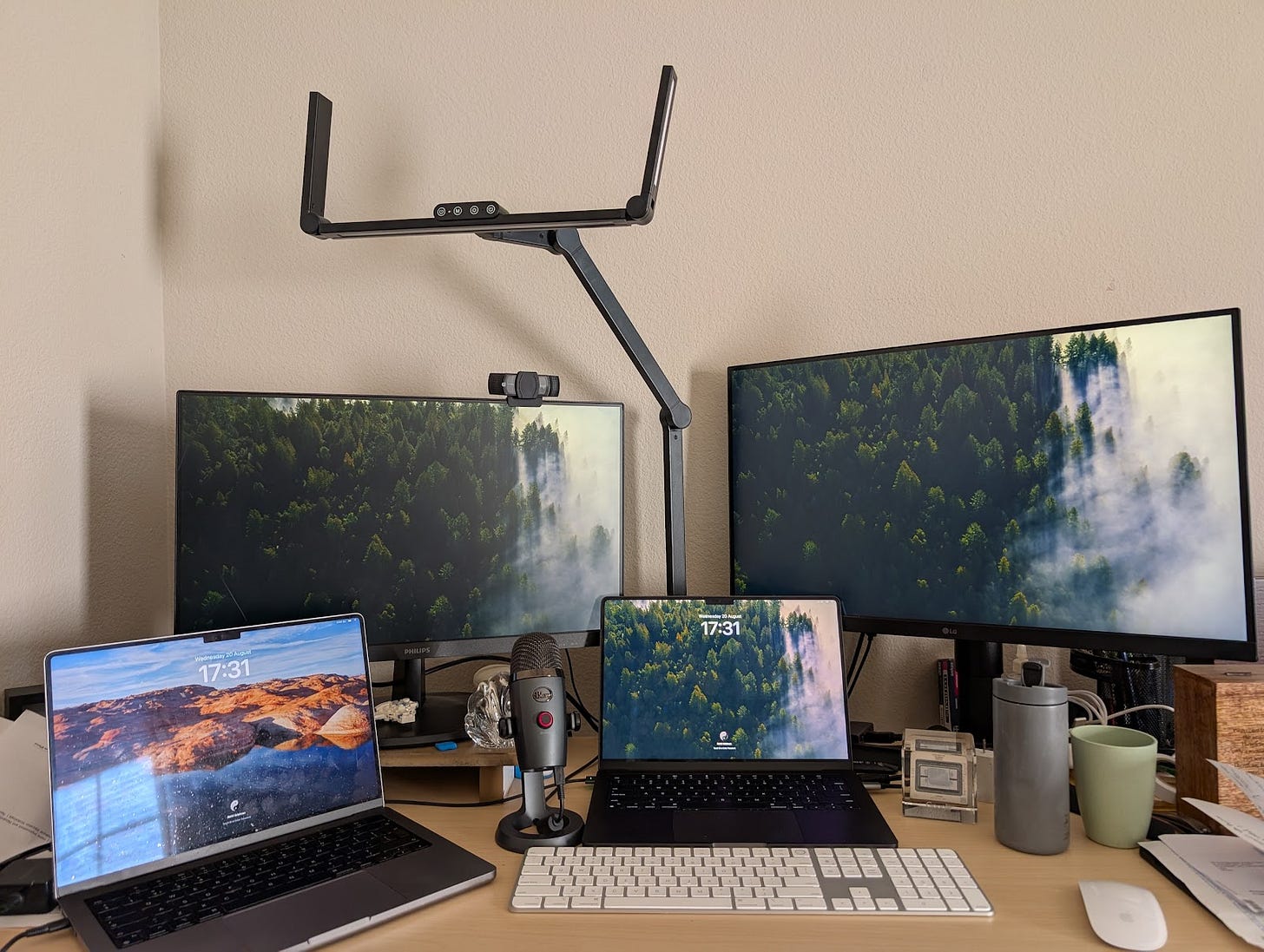
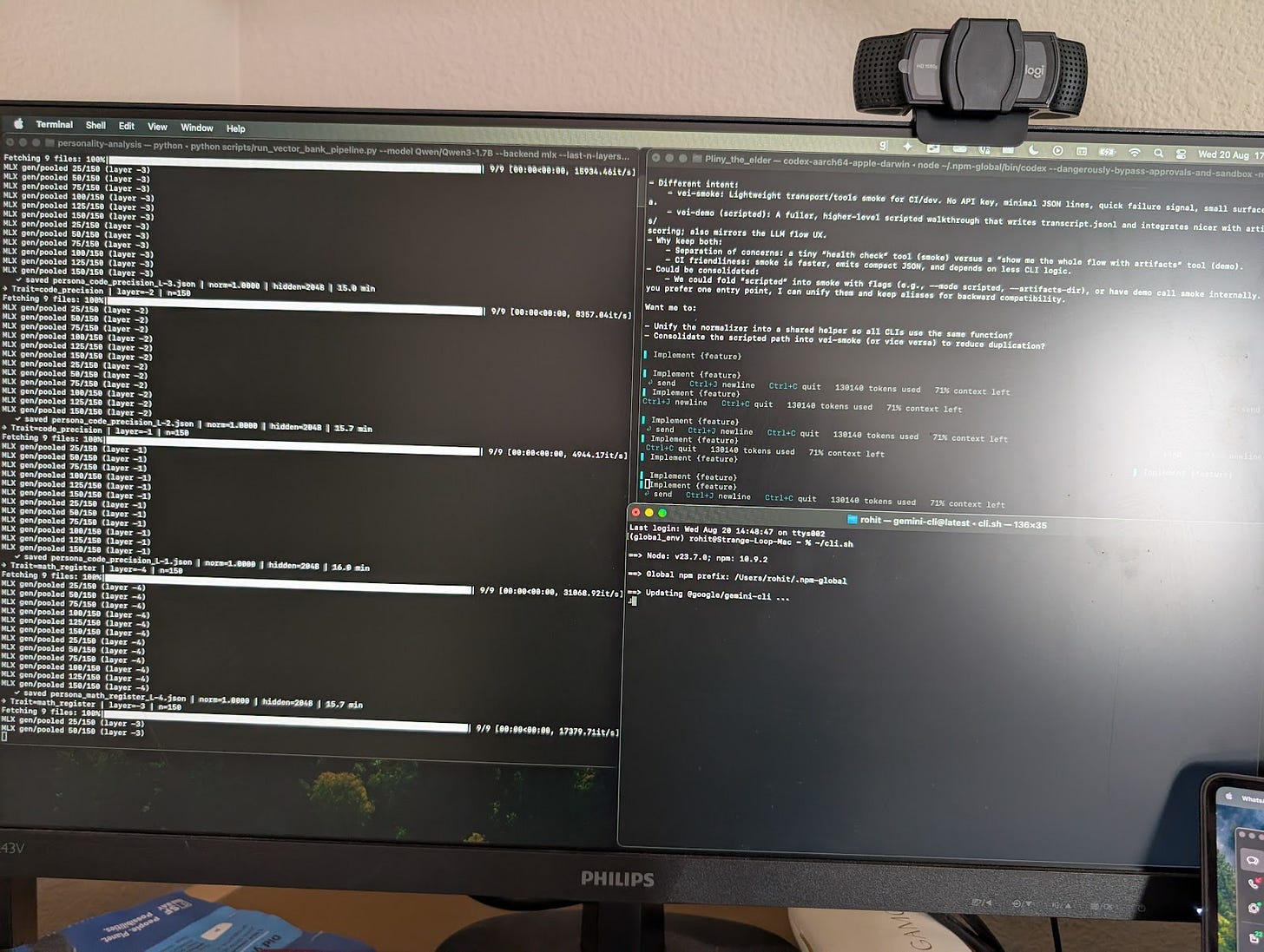
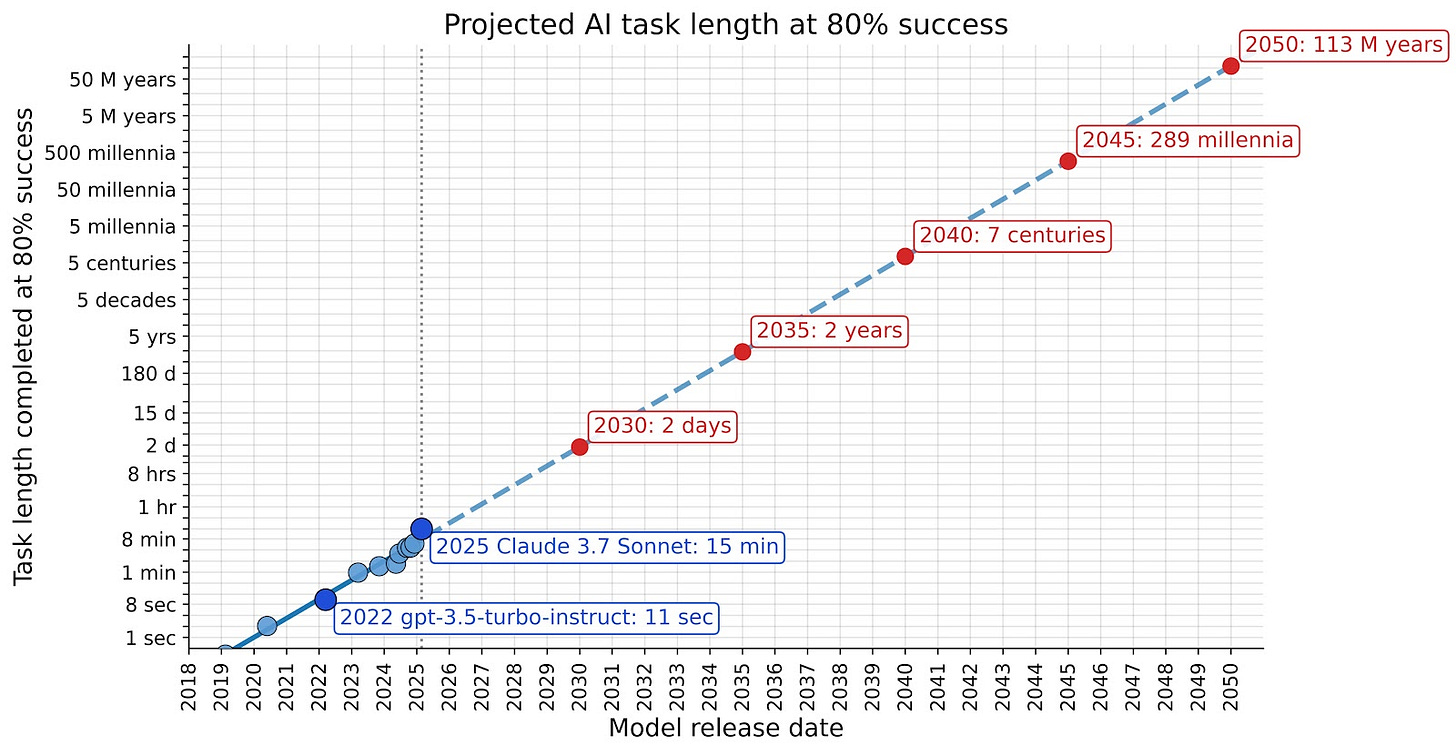
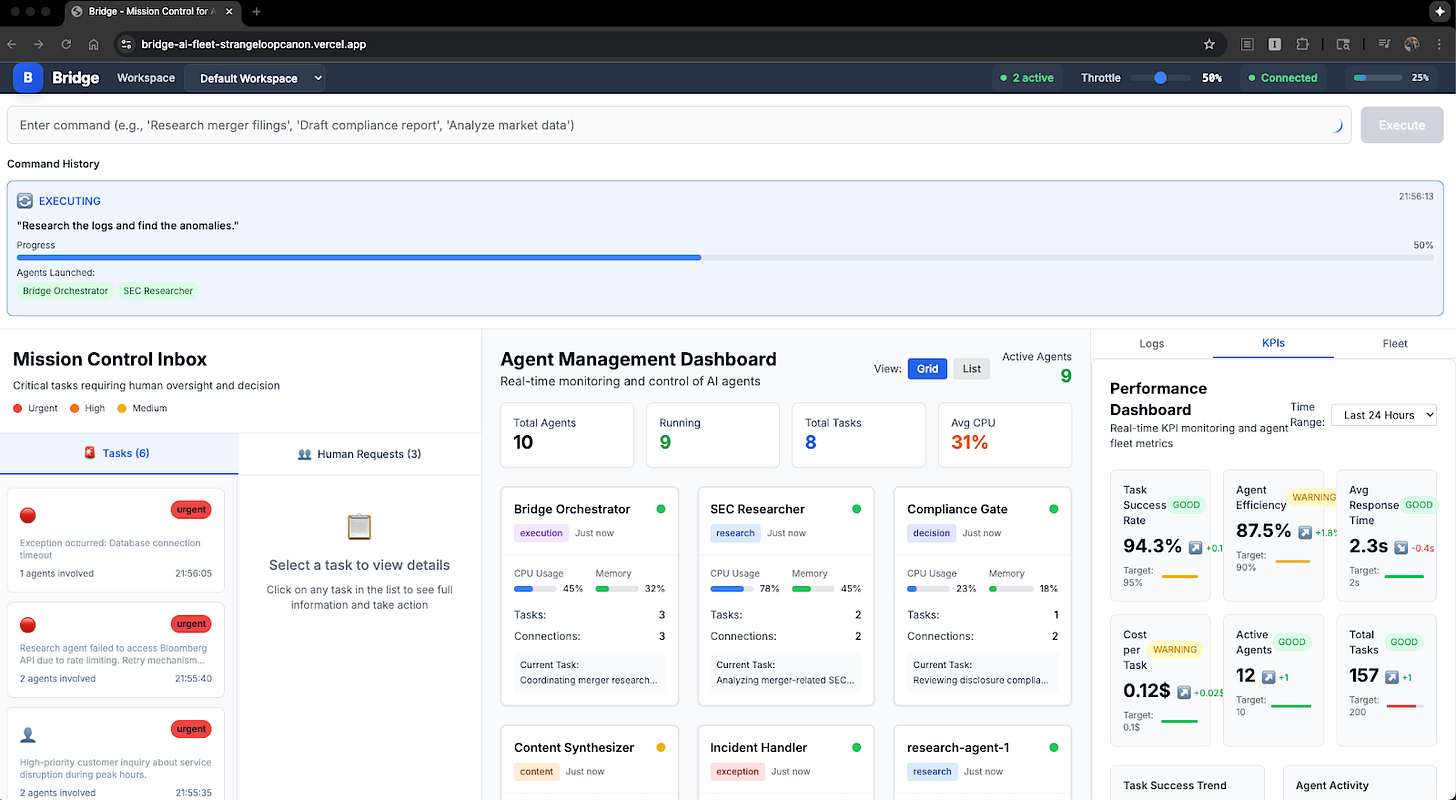
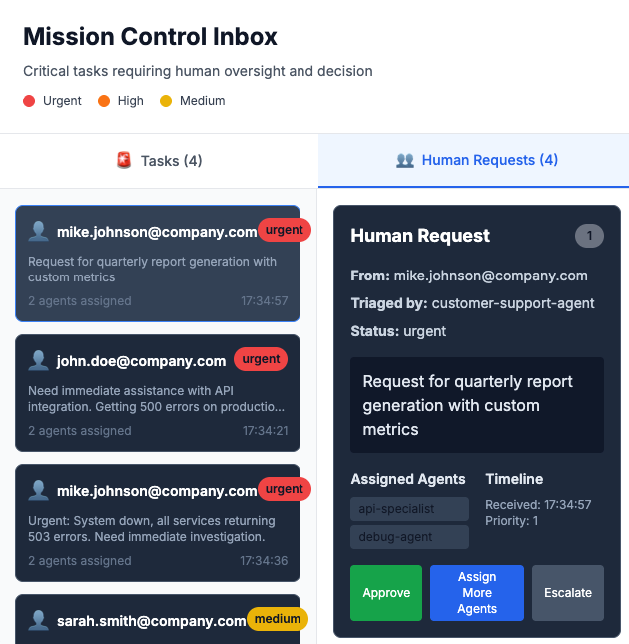
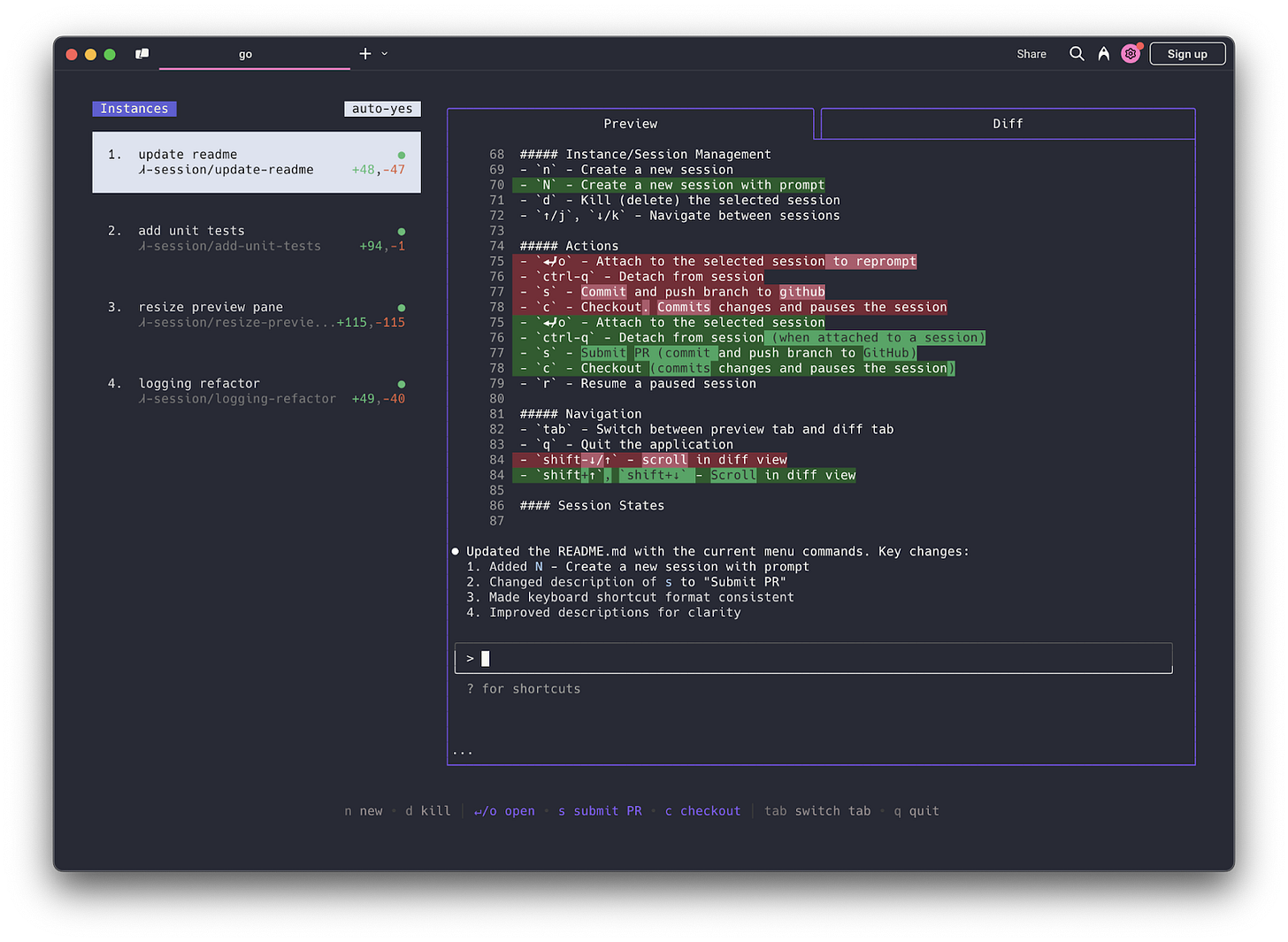
The future is starcraft
Just calmly enjoying my self employment here and you’re trying to get me to manage a PMO